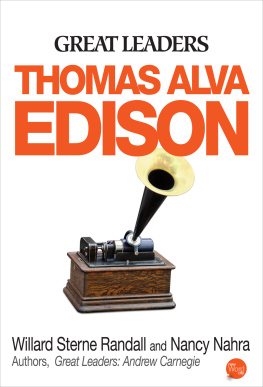ALVA VANDERBILT BELMONT

ALVA
VANDERBILT
BELMONT
Unlikely Champion of Womens Rights
SYLVIA D. HOFFERT
INDIANA UNIVERSITY PRESS
Bloomington & Indianapolis
This book is a publication of
Indiana University Press
601 North Morton Street
Bloomington, Indiana 47404-3797 USA
iupress.indiana.edu
Telephone orders 800-842-6796
Fax orders 812-855-7931
2012 by Sylvia D. Hoffert
All rights reserved
No part of this book may be reproduced or utilized in any form or by any means, electronic or mechanical, including photocopying and recording, or by any information storage and retrieval system, without permission in writing from the publisher. The Association of American University Presses Resolution on Permissions constitutes the only exception to this prohibition.

The paper used in this publication meets the minimum requirements of the American National Standard for Information SciencesPermanence of Paper for Printed Library Materials, ANSI Z39.481992.
Manufactured in the United States of America
Library of Congress Cataloging-in-Publication Data
Hoffert, Sylvia D.
Alva Vanderbilt Belmont : unlikely champion of womens rights / Sylvia D. Hoffert.
p. cm.
Includes bibliographical references and index.
ISBN 978-0-253-35661-1 (cloth : alk. paper) ISBN 978-0-253-00560-1
(electronic book)
1. Belmont, Alva, 18531933. 2. Belmont, Alva, 18531933Political and social views. 3. FeministsUnited StatesBiography. 4. SuffragistsUnited StatesBiography. 5. Women political activistsUnited StatesBiography. 6. WomenSuffrageUnited StatesHistory20th century. 7. Womns rightsUnited StatesHistory20th century. 8. SocialitesNew York (State)New YorkBiography. 9. Rich peopleNew York (State)New YorkBiography. I. Title.
HQ1413.B44H64 2012
305.42092dc23
[B]
2011024056
1 2 3 4 5 17 16 15 14 13 12
CONTENTS
ACKNOWLEDGMENTS
It is a Pleasure to thank those without whose help this book would never have been written and published. Like feminist reform movements, no book project can flourish without financial support. I would like to thank the College of Arts and Sciences at the University of North CarolinaChapel Hill, the College of Liberal Arts at Texas A&M University, the Melbern G. Glasscock Center for Humanities Research at Texas A&M University, the History Department at Texas A&M University, and the Institute for Advanced Studies in the Humanities at the University of Edinburgh, Scotland, for theirs. Laura Micheletti Puaca and Art Lindeman provided invaluable help as my research assistants in the early stages of this project. I am deeply indebted to Sarah Hutcheon and the archivists at the Schlesinger Library at Harvard University for their assistance in accessing the documents in their collections. Paul Miller and John Tschirch of the Preservation Society of Newport County in Rhode Island and the archivists in the Special Collections Library at Duke University were both welcoming and helpful. My thanks also goes to Nancy Cott for inviting me to participate in the 2007 Schlesinger Library Summer Seminar in Gender History, Writing Past Lives: Biography as History, and to the participants who provided thoughtful critiques of an early draft of one of my chapters. Peter Filene, my former colleague at UNC, read the entire manuscript in one of its earlier versions and provided invaluable help in revising it. Rebecca Schloss, Kate Engel, Cynthia Bouton, and April Hatfield read and commented upon all of my chapters. Ruth Crocker, Robyn Muncy, Laurie Maffly-Kipp, Kathleen McCarthy, Nancy Robertson, Wendy Gamber, and Theda Perdue offered me encouragement when I was much in need of it. Leon Fink, editor of Labor, graciously gave me permission to republish material taken from my article Private Secretaries in Early Twentieth-Century America. The Huntington Library, the Schlesinger Library, the Regional Oral History Office at the Bancroft Library, the Rare Book, Manuscript and Special Collections Library at Duke, and the Preservation Society of Newport County gave me permission to quote from their documents. I am grateful to Bob Sloan, his staff, and the readers at Indiana University Press for their help. And finally, I thank my family, whose love and support have nurtured and sustained me for so many years.
Sylvia D. Hoffert
Chapel Hill, North Carolina
INTRODUCTION
Alva Smith Vanderbilt Belmont, a wealthy New York socialite and militant womans rights advocate, was born in Mobile, Alabama, in 1853. But it took a lifetime for her to become what she was. The process of self-making that she engaged in was a complex and collaborative one that took place in constantly changing contexts. The stories she told about herself reflected that reality. As literary scholar John Paul Eakin has pointed out, such stories are a product of our ability to imaginatively use historical fact, memory, and circumstance to respond to our particular needs in a specific moment in time. Thus, Belmonts understanding of herself was always fragmentary and to some degree fictive.
The story she told about herself and the stories others told about her are compelling and dramatic. Among other things, she married a millionaire, divorced him, and married a second. She forced her daughter to marry the most eligible aristocrat in Europe. After her second husbands death, she embraced the cause of womans rights and then joined the National Womans Party (NWP), which represented the most militant wing of the movement. It was largely her money that paid for both its suffrage and equal rights campaigns. She was not its only donor but she was certainly its most generous one.
The sources that document who she was and what she did provide the opportunity to explore the ways that lives are constructed and to relate that process of construction to the writing of autobiography and biography. Because self-making is rarely transparent, it presents a challenge to biographers, demanding that they work with layers of narrative texts created by a great number of people telling their stories in widely divergent contexts and at various periods in time.
Belmonts financial support was crucial to the success of the suffrage and equal rights movements. But her contributions, like those of many philanthropists, came with strings attached. The result is that Belmonts story complicates our understanding of the interpersonal dynamics that characterized the American womans rights movement in the early twentieth century and the strategic choices that militant feminists made as they carried out their various campaigns.
It was Belmonts financial support of the NWP that initially piqued my interest in her. Why, I asked, would a socially prominent, immensely wealthy woman in her mid-fifties, who had a vested interest in preserving the status quo and had shown no previous concern about the obvious social, economic, and political inequities that plagued the United States in the early twentieth century, suddenly become a feminist? Why did she donate money to the most militant wing of the womans rights movement? And what were the consequences when she did?





 The paper used in this publication meets the minimum requirements of the American National Standard for Information SciencesPermanence of Paper for Printed Library Materials, ANSI Z39.481992.
The paper used in this publication meets the minimum requirements of the American National Standard for Information SciencesPermanence of Paper for Printed Library Materials, ANSI Z39.481992.









